Learn how school zones work in Victoria and what drivers, parents and communities can do to improve road safety around schools and protect children every day.
How to supervise a learner driver
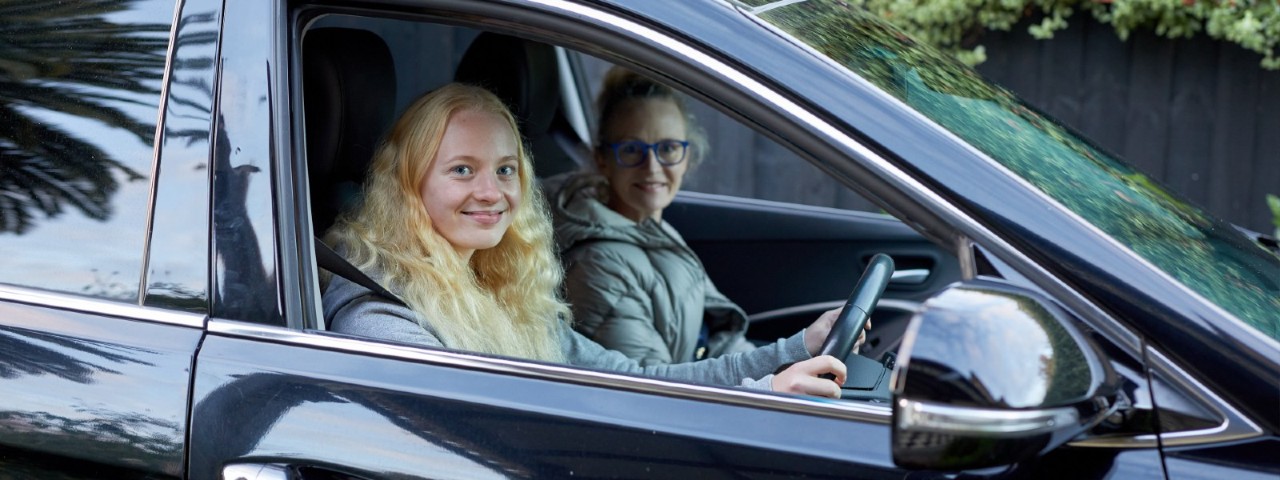
Your learner driver needs you to educate, guide and support them as they learn to drive. Here are the top tips for supervisors to keep in mind when in the car with a learner driver.
Supervising a learner driver can be both challenging and rewarding. As a supervisor driver, you will play a big role in keeping your learner safe, confident and successful on the road.
Learner drivers under 21 years old require 120 hours of supervised driving (including 20 hours of night driving) recorded in their logbook or myLearners app before they can take their driver test. Here are some of the most important things to keep in mind when supervising your learner driver on the road.
Who can supervise learner drivers?
In Victoria, learner drivers must always have a supervising driver seated beside them while driving. As a supervisor, you must have a current, full (not probationary) driver licence that matches the vehicle being driven by the learner. As always, you must carry your driver licence and use a registered, roadworthy vehicle.
You must also have a blood alcohol concentration (BAC) under 0.05 while supervising. If you are a driving instructor, your BAC must be 0 while supervising.
Make sure that you are listed as a supervising driver in your learner’s myLearners app or paper logbook before starting to supervise your learner driver.
Guide to supervising learner drivers
Evaluate your own driving habits
Your children can learn many of their own driving habits from watching your behaviour on the road.
“Many people pass on some bad driving habits without even knowing that they’re doing it,” RACV Drive School Manager Lydia Kendray says. “I see young people who’ve copied Mum or Dad and are driving with one hand, or they’re leaning on the centre console or the car door. Some even drive – and teach their kids to drive – with two feet, one on the accelerator and one on the brake. It’s just so dangerous.”
Rather than affecting a ‘do as I say, not as I do’ attitude, review your driving habits in the months leading up to your learner driver getting their learner permit. Aim to curb bad habits before inadvertently passing them on to your learner. You should also brush up on your knowledge of driving laws and reviewing any recent changes to road rules.
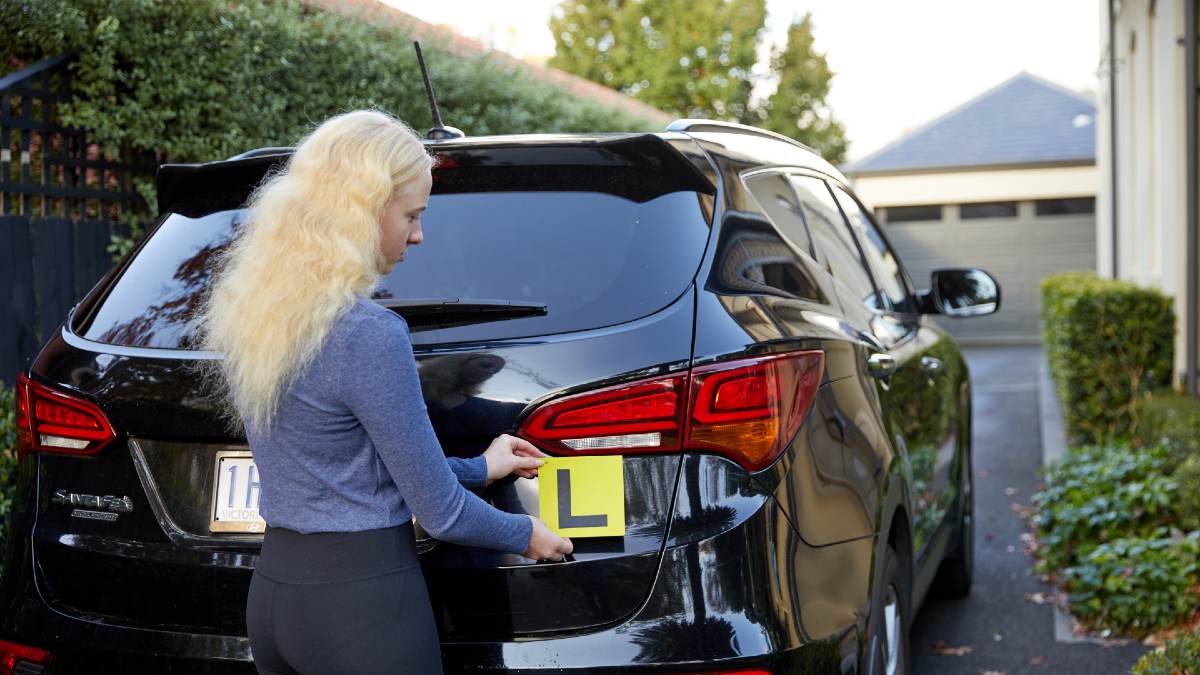
It's a legal requirement to display L plates on vehicles a learner driver is operating. Image: Matt Harvey
Plan appropriate drives and lessons
120 hours can seem like a lot of driving time, but every hour of practice can help keep your learner driver safe once they reach their probationary licence. As you and your learner driver progress through the mandated hours, plan your drives to match your learner’s experience level.
Your first few sessions should take place in an empty area, where your learner driver can practice accelerating, braking, steering and parking without encountering dangerous hazards or getting in anyone’s way. Car parks, new housing developments, industrial areas, quiet local streets and long access roads to sporting grounds or parks are all ideal beginner driving areas.
You can then gradually progress to quiet streets during daylight, then on to busier roads and finally during nighttime and adverse conditions. Once your learner driver has the hang of the basics, make sure to take them to areas where they can practice skills like turning at intersections and roundabouts, performing three-point turns, hook turns and parallel parks, and merging onto highways.
If you’re not sure whether your learner driver is ready to progress, or if you’re a bit rusty on specific skills, many supervisors find it helpful to book a professional driving lesson for their learner.
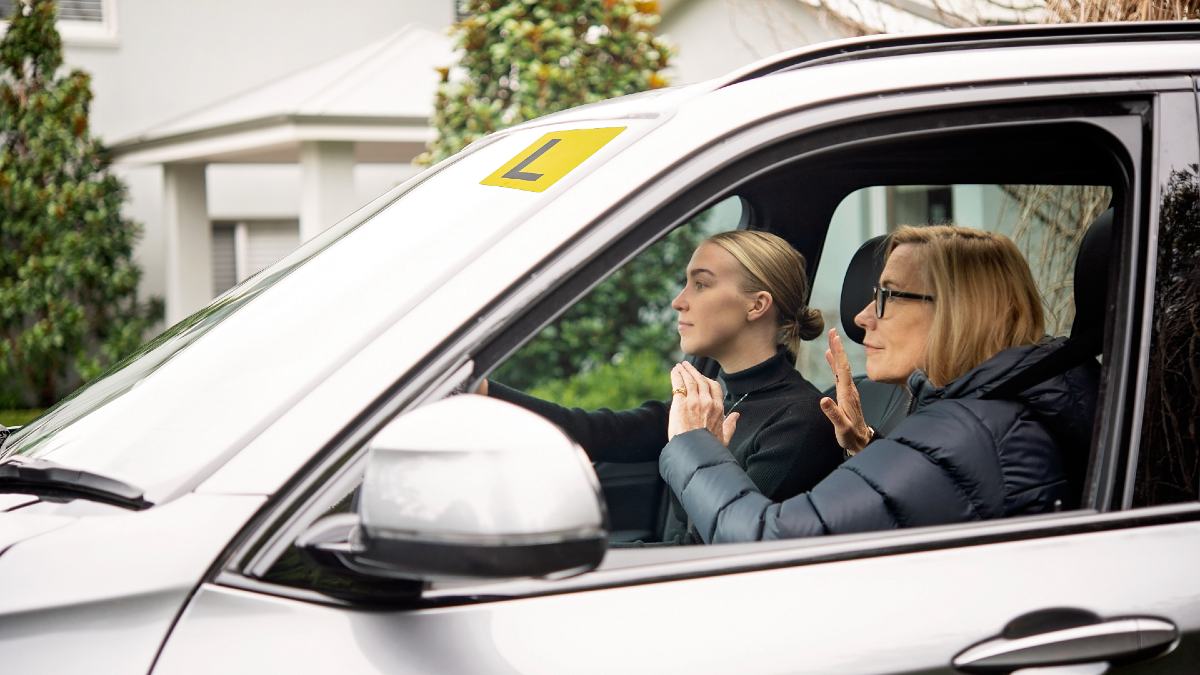
Try to remain calm and positive when teaching your learner driver. Image: Matt Harvey
Leave the attitude at the door
Supervising a learner driver can be stressful at times, but remaining calm and positive will produce a better learning environment.
Try to avoid beginning a practice session if you’re feeling tired, stressed or upset. Remember that everyone makes mistakes, especially when learning new skills, and don’t yell at or berate your learner driver. If you do get frustrated, get your learner to safely park the car and regain your calm before continuing the lesson.
Instead, the Transport Accident Commission (TAC) recommends getting your learner driver to talk through their driving decisions as they make them. You can point out speed limits, road signs, and potential hazards to help them decide. Praise your learner whenever they make a good driving decision.
After each drive, debrief with your learner driver for a few minutes. Ask them what they think went well and what they might have done differently. If there’s something your learner is struggling with, take note of it and encourage them to work on it with you during the next lesson.
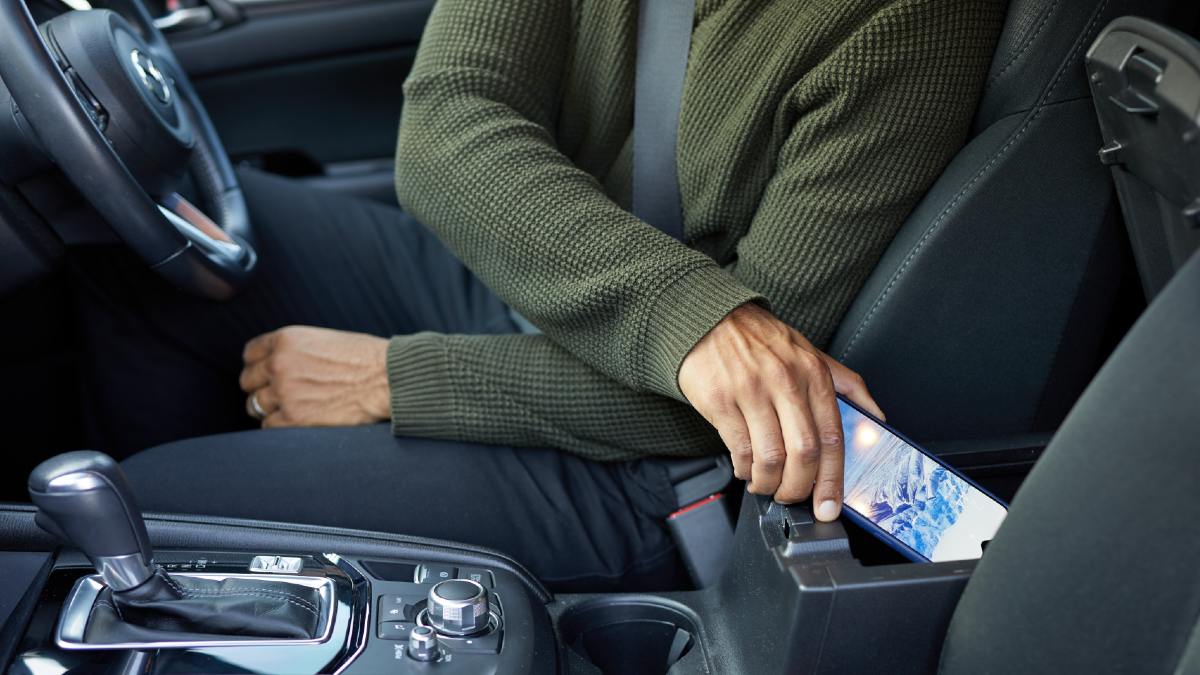
Minimise distractions when driving to stay safe. Image: Matt Harvey
Practice minimising distractions
Distractions can be deadly for drivers. One of the worst distractions for drivers of all experience levels are mobile phones. Turn both your and your learner driver’s phones on silent, then put them away out of sight for the entire drive.
Keep the music off during early lessons to aid concentration. During later drives, turn the music volume up to normal levels, making sure that you can both still hear emergency vehicle sirens or car horns.
Avoid having other passengers in the car during driving lessons until your learner has lots of hours under their belt. At that point, it can be useful to transport passengers and have conversations during the drive so that your learner driver can practice focusing on the road even during distractions.
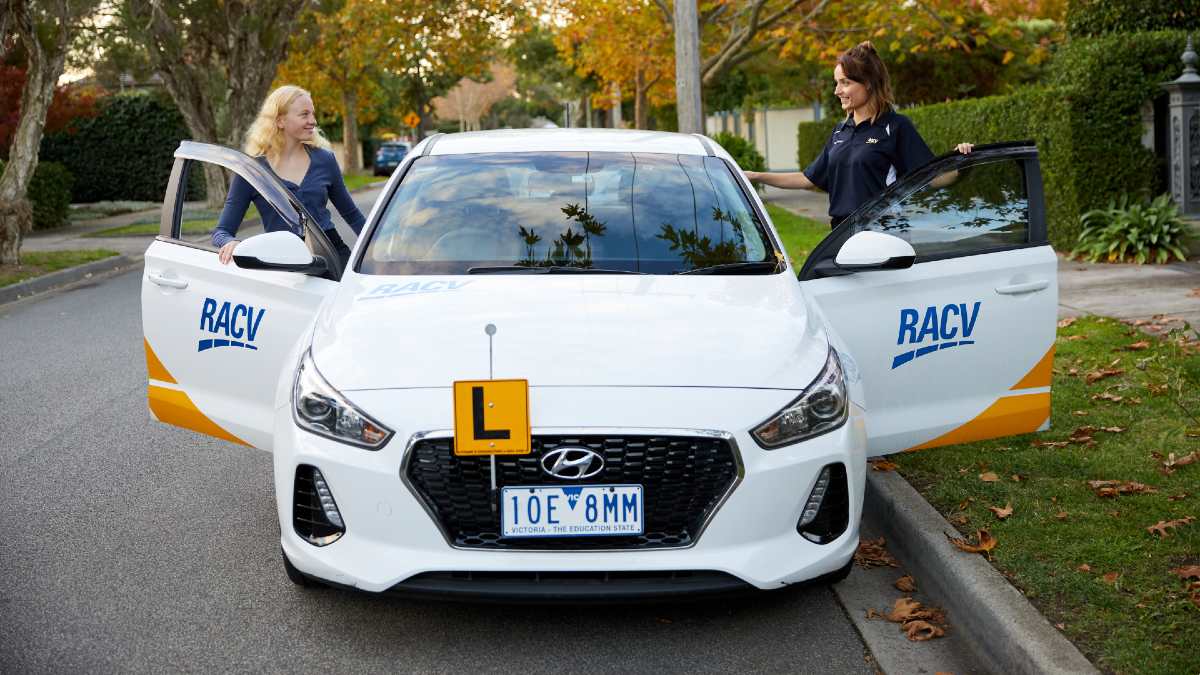
Having professional driving lessons can kick-start learners' driving skills. Image: Matt Harvey
Book your learner driver a professional driving lesson
Driving schools teach learners driving skills and safe driving habits in a controlled environment. But they’re not just for learner drivers: many supervisor drivers sit in the back seat for one or two lessons to learn value supervising skills.
“The majority of kids who do well have parents who join us in the car for a few lessons and pick up some good teaching techniques,” Kendray says. “It helps them learn how to teach on their own and reduces stress for everyone.”
RACV Members save 10 per cent on 5-lesson packages with the RACV Drive School, one of Australia’s oldest driving schools, with 80+ qualified instructors across Victoria. “The RACV Drive School goes beyond the VicRoads four stages of learning which helps learners pass their probationary driver test,” Kendray explains. “RACV has a six-stage learning program that focuses on developing drivers to not only pass their test but to stay safe beyond test routes, so they can get home safely for the rest of their lives.”
“When you book with RACV, you can have peace of mind knowing that you will be with a fully accredited instructor who also has a valid police check, working with children check, as well as full, comprehensive insurance including Professional Indemnity and Public Liability insurance. It is also reassuring to know that all our cars are new, five-star ANCAP-rated vehicles full of the latest tech and safety features.”
Keep all supervised drives logged
It’s important to keep your learner’s logbook up to date so that they can take their driving test. You must record at least 120 total driving hours, including at least 20 night driving hours. Make sure to only use the official learner logbook issued by VicRoads or the myLearners app.
“Most learners are now using the app instead of the paper logbook; in fact, it is rare to see learners using the paper logbook anymore,” reports RACV Drive School Senior Instructor Silvia Morris. “Learners find it much simpler to log their hours in the app and more convenient as they usually always have their phone on them.”
Using the myLearners app helps avoid some of the top reasons why VicRoads refuse to accept a learner’s logbook. If any pages are damaged, if the learner driver’s details aren’t provided at the top of every page, or if any entries are illegible, written in pencil, or modified or deleted using white-out, VicRoads will not accept the logbook. You can learn more about logbook requirements here.
“When using the paper logbook, learners had a higher likelihood of turning up on their test day with hours not being correctly logged, entries being incomplete or not correctly signed,” Morris says. “This could sometimes result in them not being able to do their driving test, which as you can imagine is a huge disappointment on their test day.”
If your learner’s logbook is incorrect or incomplete, they will have to forfeit any appointment and test fees, then wait at least six weeks before undertaking their probationary licence test – so make sure you log all your drives with care!
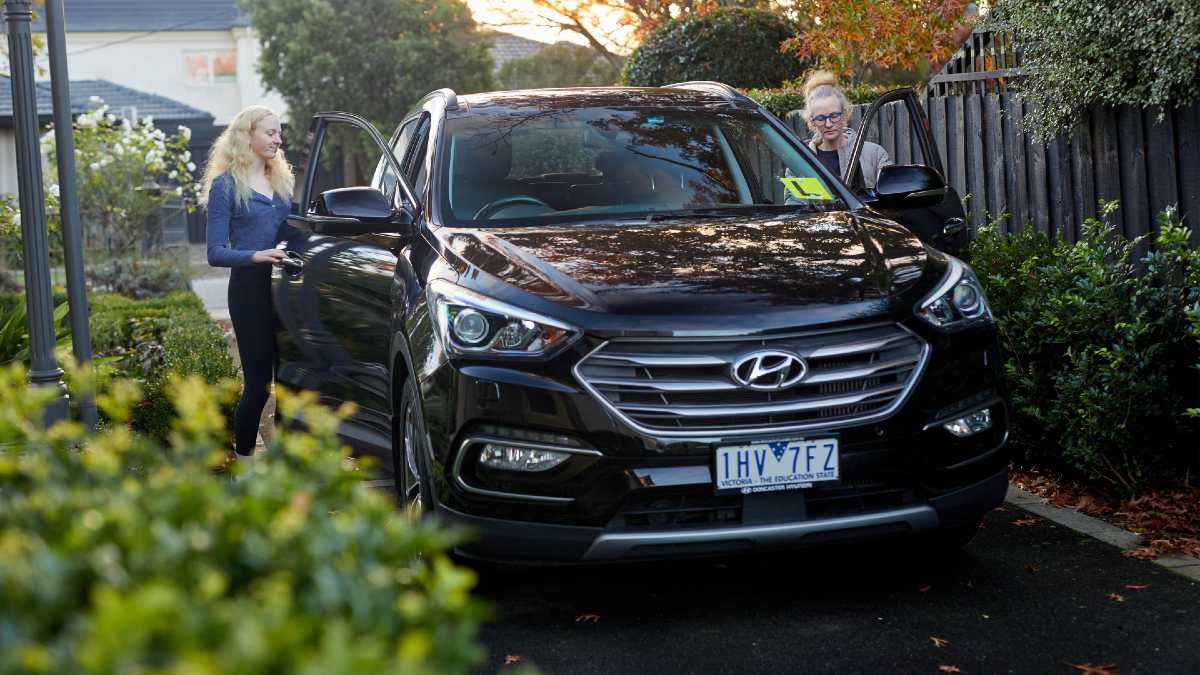
Learner drivers may be automatically covered under your insurance policy. Image: Matt Harvey
How do I insure a learner driver?
Under RACV Car Insurance policy, learner drivers are automatically covered under the supervising driver’s policy. That’s because the supervisor is considered the driver when a learner is behind their wheel. So, if the learner driver is involved in an accident, the claim will be treated as if they were the supervisor driver.
If you don't have RACV Car Insurance, you will need to check your insurer’s Product Disclosure Statement (PDS) to ensure that your learner driver is covered under your policy.
The information provided is general advice only. Before making any decisions please consider your own circumstances and the Product Disclosure Statement and Target Market Determinations. For copies, visit racv.com.au. As distributor, RACV Insurance Services Pty Ltd AFS Licence No. 230039 receives commission for each policy sold or renewed. Product(s)issued by Insurance Manufacturers of Australia Pty Ltd ABN 93 004 208 084 AFS Licence No. 227678.


